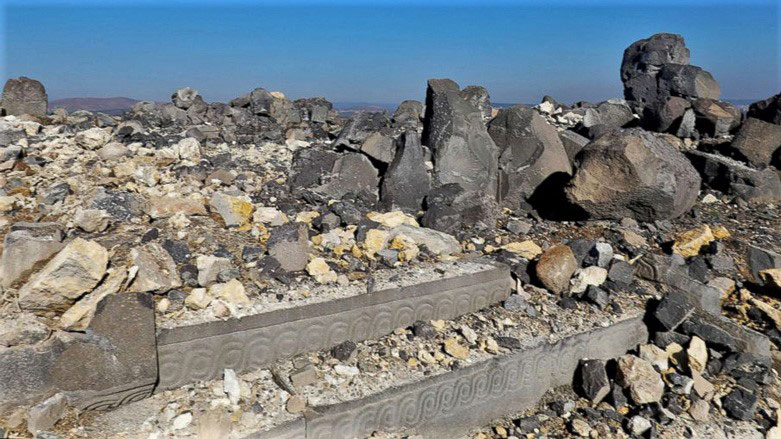After Syrian accusation, Kurds stress protection of national antiquities

ERBIL (Kurdistan 24) – The People’s Protection Units (YPG) on Thursday rejected claims made by the Syrian regime’s Directorate for Antiquities that the group has been involved trafficking antiquities, countering that their fighters, in fact, were the ones defending Syria’s heritage as government forces left them vulnerable to war.
“When the Syrian regime gave up on Northern Syria and left it unprotected, our forces, along with liberating the whole region from the hands of terrorists and mercenaries, have worked for the past few years to preserve and protect historical sites such an as castles and bridges,” the YPG said in a statement.
“It was us who have protected the Roman Bridge and archaeological sites in Tel Moza, it was us who have liberated Tel Berak, Tel Halaf, Qalat al-Sukkariyah, Qalat Najm, Qalat Jabar and cultural sites in the cities of Raqqa, Hasakah and Deir ez-Zor,” the group continued. “During all the past years we have defended the history and the culture of the region and fought against the theft, the plunder and trafficking of antiquities.”
On November 17, Head of the Directorate for Antiquities Dr. Mahmoud Hamoud accused the YPG, ISIS, and Al Nusra of stealing and trafficking antiquities in an interview with the German news agency DPA.
In response, Thursday’s statement continued, “The lies and false assertions launched by the head of [the] Syrian Directorate for Antiquities against our forces are contradicting his professional duties and falling within the framework of supporting a particular political interest.”
“When the Syrian state gave up its duty of protecting the region, our forces set up an example and a role model for organizing the vital energy of young people from various ethnic groups, fought against all kinds of terrorists and defend[ed] the people and the region.”
The YPG said, however, that they have also been forced to “establish defensive positions and trenches.”
“The conditions of war oblige us to create the lines of defense and military posts. We will continue to do so as long as our country is threatened by terrorists or invaders.”
“But.” the YPG added, “our forces have been careful to preserve and protect the antiquities and archaeological sites, because we fully believe that they represent our identity, which we defend.”
The group continued with a challenge, that the Syrian official who made the comments “ought to present the evidence and documents that prove his words and not to descend to making speeches which are contrary to his professional duties and competences.”
Moreover, the statement also asked why the Syrian official did not bring up the bombing of archeological sites in Afrin by the Turkish military during the Olive Branch operation between January and March.
“He also ought to talk about the Turkish bombardment of historical places and archaeological sites in Afrin province. Yet due to his particular interests and viewpoint he closes his eyes to these crimes.”
Earlier, the Syrian Ministry of Culture blamed Turkey for damaging an archeological site in Ain Dara, which Turkey denied.
A UN report released in August read that “on 21 January, [Turkish] bombardments hit the Tell Ain Dara archaeological site, less than 2 km from Ain Dara village and 10 km from Afrin city.”
“The attack damaged the site protected by the United Nations Educational, Scientific and Cultural Organization (UNESCO), including the entrance and the main hall,” the report said, adding that “Special care must be taken to avoid causing damage to historic monuments, unless they are military objectives.”
Editing by John J. Catherine
